Lithium Mineral for Body

While lithium is not classified as an essential nutrient in the traditional sense, it is present in trace amounts in the human body and has been the subject of growing interest for its neurological and metabolic effects. Lithium is naturally found in lithium-bearing minerals, soil, and drinking water, and can also be consumed through dietary sources or supplements.
Here’s a detailed look at how lithium from minerals may affect the body, its potential benefits, and considerations for health.
1. How Does the Body Get Lithium?
Lithium enters the body primarily through:
- Drinking water: Especially in regions where groundwater flows through lithium-rich rock formations.
- Food: Whole grains, vegetables (especially potatoes and leafy greens), and some herbal teas may contain trace amounts.
- Mineral supplements: Some over-the-counter lithium supplements (like lithium orotate or lithium aspartate) are marketed for mood support.
- Pharmaceutical use: Lithium carbonate is prescribed in higher doses to treat bipolar disorder and other mood disorders.

2. Lithium’s Role in Brain and Mental Health
Although not officially recognized as a nutrient, lithium has been shown to have mood-stabilizing properties. It is widely used in psychiatric medicine and is associated with:
- Reduced rates of depression and suicide in populations with higher lithium levels in drinking water
- Neuroprotective effects, potentially reducing the risk of neurodegenerative diseases
- Stabilization of neurotransmitter activity, particularly involving serotonin and dopamine
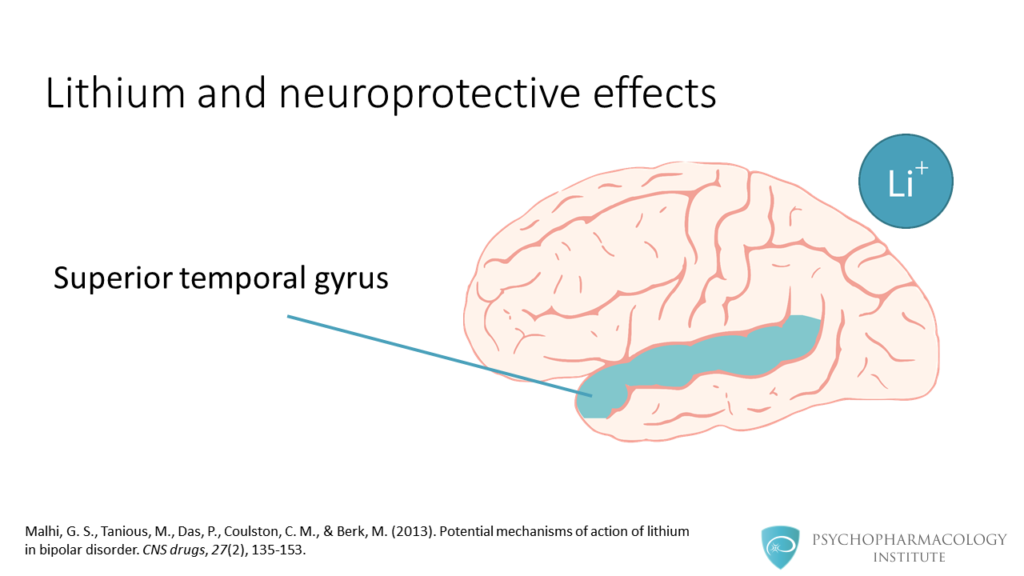
3. Lithium and Neurodegenerative Diseases
Emerging research suggests that low-dose lithium may help protect against conditions like:
- Alzheimer’s disease
- Parkinson’s disease
- Amyotrophic lateral sclerosis (ALS)
Lithium is believed to influence cell signaling pathways that protect neurons and reduce brain inflammation.
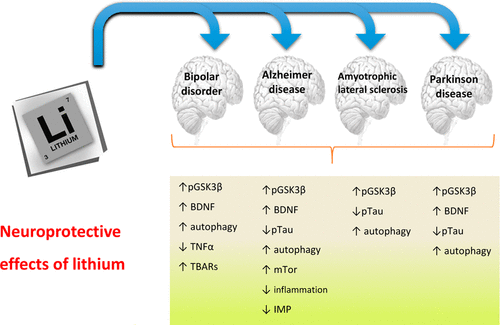
4. Lithium in Medicine: Lithium Carbonate
The most well-known medical use of lithium is in the form of lithium carbonate, a compound derived from lithium-bearing minerals. It is used to treat:
- Bipolar disorder
- Major depressive disorder (off-label use)
- Aggressive behavior and impulse control disorders
Lithium works by modulating neurotransmitter activity, inhibiting enzymes like GSK-3β, and supporting neuroplasticity.

5. Dietary and Environmental Lithium Exposure
Lithium levels in the body vary depending on geological factors and diet:
- High-lithium regions: Parts of Japan, Austria, and Texas have naturally lithium-rich water and soil.
- Low-lithium regions: Urban and highly processed food diets may reduce lithium intake.
Some studies suggest that low environmental lithium exposure may correlate with higher rates of mental illness and behavioral issues.
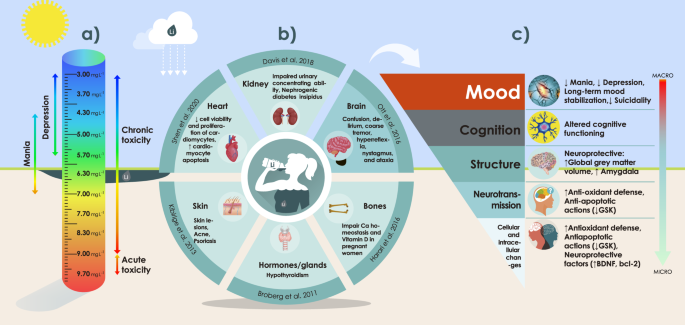
6. Lithium Supplements and Safety
While prescription lithium carbonate is used under medical supervision, low-dose lithium supplements (such as lithium orotate or lithium aspartate) are available over the counter in some countries.
- Dosage: Supplements typically contain microgram amounts, much lower than pharmaceutical doses.
- Safety: Generally safe at low doses, but caution is advised for those with kidney issues or on psychiatric medications.
- Benefits claimed: Mood stabilization, reduced aggression, and improved cognitive function.
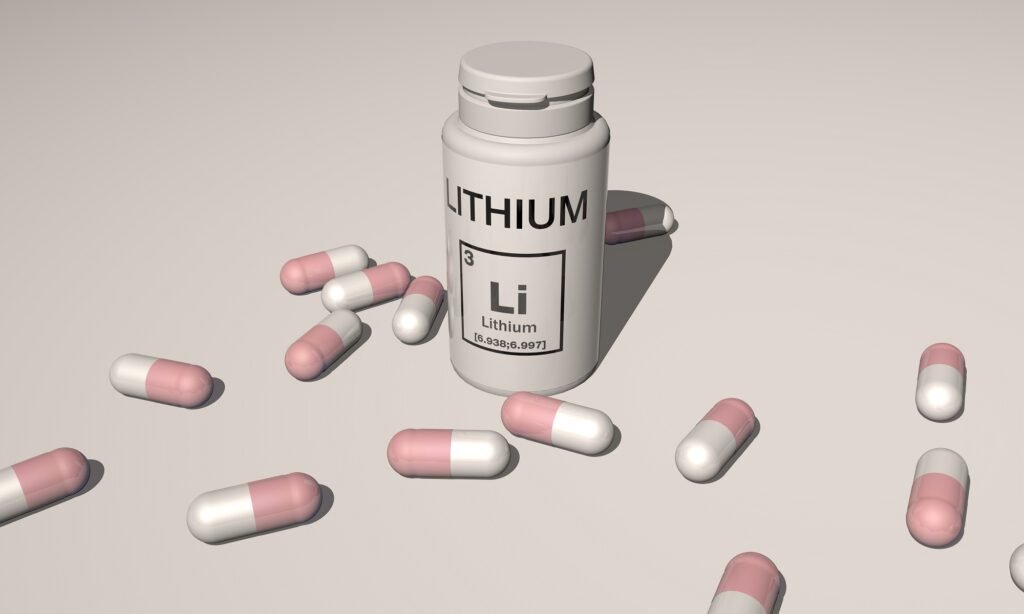
7. Lithium in the Body: Levels and Regulation
Lithium is not stored in the body long-term and is excreted primarily through the kidneys. Typical lithium levels in the human body are:
- Blood serum: < 0.1 mmol/L (non-medical users)
- Therapeutic range (bipolar treatment): 0.6–1.2 mmol/L
- Toxic level: > 1.5 mmol/L
Monitoring is essential for those on lithium therapy due to its narrow therapeutic index.
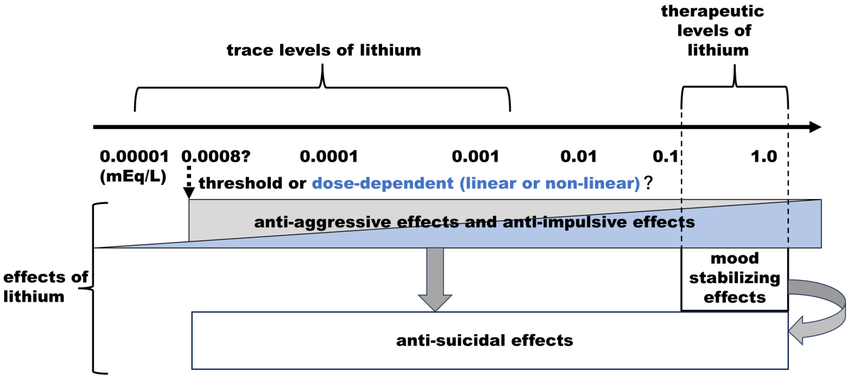
Summary Table: Lithium Sources and Health Impacts
| Source | Form of Lithium | Use or Effect |
|---|---|---|
| Drinking water | Trace lithium ions | May support mood and mental health |
| Food | Trace lithium compounds | Dietary intake from plant and grain sources |
| Supplements | Lithium orotate, aspartate | Mood support (non-prescription) |
| Medication | Lithium carbonate | Treatment of bipolar disorder |
| Lithium minerals | Spodumene, lepidolite | Not directly consumed but source of lithium for supplements and medicine |
FAQs
Q1: Is lithium good for the body?
A1: In trace amounts, lithium may support mood regulation and brain health, but it should not be taken without medical guidance.
Q2: Can lithium be absorbed through the skin?
A2: Yes, but in very small amounts. Lithium salts can be found in some skincare products for calming effects.
Q3: Is lithium in drinking water safe?
A3: Yes, in low concentrations. Some studies suggest it may have mental health benefits, but high levels can be harmful.
Conclusion
While lithium is not a dietary mineral like calcium or iron, it may play a supportive role in brain function and mood regulation. Trace amounts found in mineral water, food, and supplements may offer neuroprotective benefits, and pharmaceutical lithium remains a cornerstone in treating mood disorders.
Understanding the sources and effects of lithium in the body helps clarify its potential benefits and the importance of responsible use.

